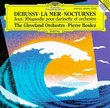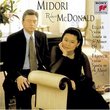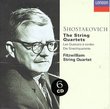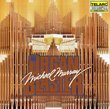| All Artists: Gustav Mahler, Pierre Boulez, Chicago Symphony Orchestra Title: Mahler: Symphony No. 9 Members Wishing: 1 Total Copies: 0 Label: Deutsche Grammophon Release Date: 3/17/1998 Genre: Classical Styles: Forms & Genres, Symphonies, Symphonies Number of Discs: 1 SwapaCD Credits: 1 UPC: 028945758121 |
Search - Gustav Mahler, Pierre Boulez, Chicago Symphony Orchestra :: Mahler: Symphony No. 9
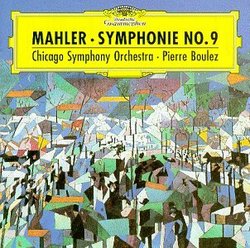 | Gustav Mahler, Pierre Boulez, Chicago Symphony Orchestra Mahler: Symphony No. 9 Genre: Classical
|
Larger Image |
CD DetailsSimilarly Requested CDs |
CD ReviewsAllow the Music to Speak for Itself Lee M. Mcguire | Urbana, IL | 12/16/2001 (5 out of 5 stars) "I have been waiting all my life for a performance of Mahler's Ninth such as this. The "over-interpretation" of Mahler is a sticky argument that we could spend the rest of our lives arguing over, just let me say, I love Bernstein and his highly emotional and charged recordings of the Ninth. But Boulez allows us to truly understand the genius of Mahler's writing and orchestration. Every line is clean and unlike the intense dynamic extremes in other recordings of Mahlher's symphonies I've heard that might sound good in a live hall, this studio recording is clear from start to finish with an ambience that doesn't try to manipulate the sound, or for that matter, the audience. The opening andante is one of the most beautiful versions I have heard. Even and crisp, the opening motif speaks for itself, without the "emotional" tweaking many conductors try to milk out of it. The way the opening motif is written, why mess around with it? Mahler's genius stands alone. The sentimentality and the plaintive tone of the composition is in the notes. In fact, after listening to Boulez's version, many other recordings (including my old favorite Bernstein's) seem maudlin and less profound because of this. I don't believe one can be right or wrong in their opinion of this piece, it is expansive enough to cover a wide range of interpretations, but I am of the "anti-SWOON" school of classical music. Call it cold, but it moves me. I love subtext and don't need everything explained to me." A great performance, but not for everyone. Richard Branyan | Memphis, TN United States | 02/02/2001 (5 out of 5 stars) "If you appreciate the Mahler 9th primarily as a musical experience, you will love this performance. If you approach Mahler for vicarious primal-scream therapy, as so many do, then you will find it "cold," and should look elsewhere, probably to one of Bernstein's later recordings. I have heard at least fifteen recordings of this symphony over the years, and for me Boulez's command of the work's architecture, especially in the first movement, is without parallel. Boulez also reveals more of the work's polyphonic character than most. I must say, though, that the "4D" recording is dry and claustrophobic (one reviewer whose name I cannot recall aptly called it "relentlessly 2D"). My all time favorite interpreter of this symphony is Jascha Horenstein, whose volatility seems generated from the music, not forced upon it in order to put it through a kind of emotional bloodbath. But I would never want to be without this recording by Boulez, whose amazing control molds the piece into a convincing whole, as opposed to the string of febrile episodes we so often get." A Very Fine Recording of the Challenging Mahler 9th Grady Harp | Los Angeles, CA United States | 01/21/2005 (5 out of 5 stars) "The symphonies and song cycles of Gustav Mahler have become a staple of every orchestra's repertoire since the passionate fervor of Leonard Bernstein's gradual release of the entire cycle in the 1960s. Granted great conductors such as Bruno Walter, Otto Klemperer et al were generous in leaving behind the legacy of Mahler's particular brand of composing. But it was Bernstein's crusade that established Mahler as a voice not to be ignored. Now the recordings of Mahler works gain more attention than most other composers each year as the public appetite for these masterworks proliferates.
Almost everyone knows the 1st, 2nd (Resurrection), 3rd, 4th - all laced with musical quotations from his songs and folk music -the devastatingly beautiful Adagio from the 5th, and more and more the 6th as it finds increasing performances. The 'tough' symphonies such as the 7th, 8th and especially the 9th now are finding at least enough exposure via recordings that they seem the next logical step toward the standard orchestral season. This performance of the demanding, complex, extraordinarily difficult 9th symphony is an exciting examination of the complexities of the work. Pierre Boulez conducts the Chicago Symphony Orchestra (one could almost stop there: with forces such as these the result is bound for glory!) in a well-engineered CD. Boulez continues to unravel the puzzles of orchestration that have befuddled many a fine conductor, especially in the first movement and his control over the balance of the orchestral voices is among the finest recorded. The CSO plays its heart out for him in the mighty climaxes and becomes hauntingly close to inaudible in the opening and closing movements. What is missing for this listener is the wry tongue-in-cheek humor of the second movement that balances the symphony's preoccupation with death and dying, and the idiosyncratic weeping passion of Mahler's late years. Perhaps this is due to the studio ambience and method of playing for retakes. Having just experienced a wondrous, soulful, yet kaleidoscopically multifaceted Mahler 9th with Michael Tilson Thomas on tour with the San Francisco Symphony in Disney Hall in Los Angeles (one hopes and expects that MTT will release the 9th as the next installment in his own highly regarded Mahler cycle), it IS possible for all the angst and all the survey of Mahler's response to his life's waning to be respected and discovered. Yet for all that, Boulez and the CSO give a dazzlingly fine version, one that opens most of the windows and respects Mahler's scoring to guide the long work to its own end. For that we should all be grateful. Perhaps the mind and heart will eventually meet - probably with the MTT recording to come. Grady Harp, January 2005 " |

 Track Listings (4) - Disc #1
Track Listings (4) - Disc #1

